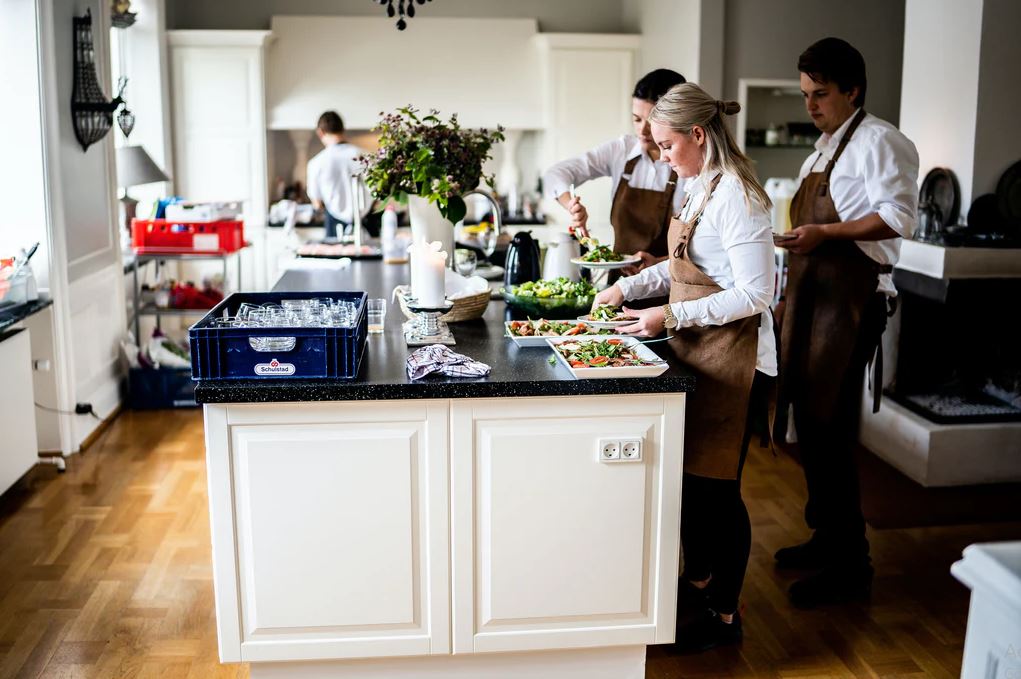Sustainability has become an important part of the culinary world, with many chefs embracing practices that reduce waste and make kitchens more eco-friendly. Beyond their creativity on the plate, chefs and restaurants have developed new ways to handle food waste, which can inspire home cooks to follow suit. From waste sorting to using tools like a countertop composter, the culinary industry’s approach to sustainability offers valuable lessons for households looking to adopt similar habits.
Rethinking Waste in the Kitchen
Kitchens (professional and domestic) produce significant amounts of waste daily. The potential for landfill contributions is high from vegetable trimmings and fruit peels to leftover ingredients. Chefs have begun to shift this narrative by viewing waste as an opportunity. By implementing creative composting practices, they can transform organic scraps into resources that benefit the environment.
Composting in Restaurants: A Model for Homes
Restaurants generate large quantities of food waste, making them ideal places to develop innovative composting systems. Many establishments use tools such as a countertop food composter, which allows them to process organic scraps quickly and cleanly. These machines are compact, efficient, and ideal for busy kitchens, making them a practical solution for reducing waste.
Some chefs go beyond composting by designing menus that utilize every part of an ingredient, a practice known as “root-to-stem” cooking. For example, carrot tops can become pesto, while citrus peels are candied or turned into zest. This approach minimizes waste before composting even begins.
What Home Cooks Can Learn from Culinary Composting
While home kitchens may not operate at the same scale as restaurants, the principles of sustainable waste management are easily adaptable. Here are a few ways to bring restaurant-level composting practices into your home:
- Invest in a Countertop Composter
A countertop composter is a great tool for households aiming to reduce waste. These devices are compact, easy to use, and perfect for turning everyday scraps into nutrient-rich compost. They are particularly useful for busy home cooks who want a clean and odor-free solution to food waste.
- Adopt a Root-to-Stem Mindset
Like professional chefs, home cooks can explore creative ways to use every part of their ingredients. For instance, broccoli stems can be shredded into slaw, and herb stems can be blended into sauces or stocks.
- Organize a Composting System
Pair a countertop food composter with an outdoor bin or raised garden bed to maximize the benefits of composting. Use the finished compost to enrich soil in your garden or planters.
- Involve the Whole Household
Make composting a family activity. Teaching children about composting instills sustainable habits early and encourages them to think critically about waste.
Tools and Technology for Modern Composting
Advancements in composting technology have made sustainable waste management easy and convenient. Chefs rely on commercial-grade composters to handle high volumes of waste efficiently. At home, smaller tools like a countertop food composter serve the same purpose on a more manageable scale. These devices quickly process organic waste into compost that can be used in gardens or shared with neighbors who enjoy gardening.
A countertop kitchen composter is particularly valuable for households with limited outdoor space. Its compact design fits easily into any kitchen, making it an accessible option for those living in apartments or urban areas.
The Environmental Impact of Culinary Composting
Culinary composting practices significantly reduce the amount of organic waste sent to landfills. This reduction helps lower greenhouse gas emissions, as decomposing organic matter in landfills produces methane, a potent contributor to climate change. Composting instead converts this waste into a resource supporting healthy soil, which is vital in carbon sequestration and overall ecosystem health.
Restaurants that prioritize composting set an example for their patrons, demonstrating how small changes in waste management can have a big impact. Similarly, home cooks can contribute to this environmental effort by integrating composting tools and habits into their daily routines.
Inspiring a Sustainable Future Through Culinary Practices
The innovative composting practices used by chefs and restaurants highlight the possibilities for sustainable living. By combining creativity with practical tools like countertop kitchen composters, these culinary leaders demonstrate how reducing waste can be both manageable and impactful, and home cooks have much to gain from adopting similar practices.



